Categories > Guides and Tips

Ultimate Guide on Moving to Thailand
- Life in Thailand: What’s it like?
- Why move to Thailand?
- Starting a Life in Thailand: Preparing for Your Move
- Settling In: Making Yourself at Home in Thailand
- Living in Thailand: What to Expect When You’re There
- Transitioning to a Life in Thailand from Overseas
- Love living in Thailand? Here’s how to live here permanently!
- Stay Prepared: Emergency Numbers in Thailand
- FAQs about Moving to Thailand
Are you considering moving to Thailand but don’t know where to start? Look no further! In this ultimate guide, we’ll walk you through everything you need to know to make your move to Thailand as smooth as possible.
Moving to Thailand requires obtaining a visa, finding housing, and adapting to a new culture. You’ll need to research visa options, arrange accommodations, and adjust to Thai customs and traditions.
Consider language barriers and budget accordingly to make the move as smooth as possible.
We know that making such a big move can be daunting, especially when it comes to navigating a new culture and language. That’s why we’ve created this ultimate guide to help you navigate the process.
So pack your bags and get ready for an adventure in the Land of Smiles!
Life in Thailand: What’s it like?
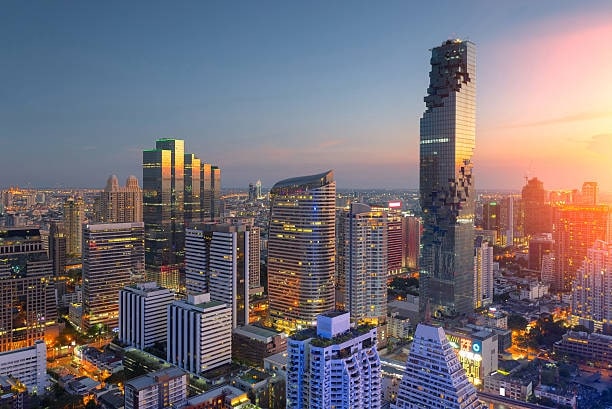
Living in Thailand can be an exciting and enriching experience.
The cost of living is relatively low, making it an attractive destination for expats seeking a more affordable lifestyle. However, adapting to a different way of life and language barriers can be challenging.
Many locals may not speak English, making communication and day-to-day activities more difficult.
The process of obtaining a visa and finding suitable housing can also be a challenge, especially if you are unfamiliar with the local laws and customs.
Plus, the healthcare system in Thailand may also be different from what you’re used to, so it’s essential to research and understand the options available.
Why move to Thailand?
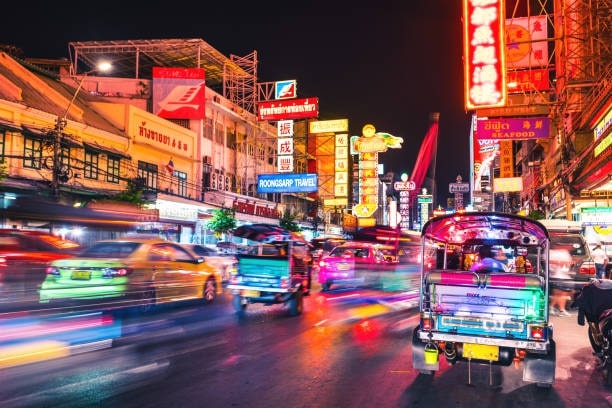
Many move for the low cost of living, beautiful scenery, and laid-back lifestyle. Whether for work, retirement, or a change of pace, Thailand offers a unique experience for those willing to take the plunge.
There are also numerous factors that make Thailand an appealing destination for those seeking a new and exciting way of life.
Let’s explore some of the top reasons why people should choose to move to Thailand.
1. Thailand has low crime rate and high safety standards

Thailand is known for its low crime rate, making it an attractive destination for expats looking for a safe and secure living environment.
The government has made significant efforts to improve safety by reducing crime rates and improving law enforcement. As a result, Thailand is now one of the safest countries in Southeast Asia, with low rates of violent crime and theft.
The strong sense of community and respect for social norms in Thai culture is another reason for the low crime rate.
Thai people prioritise family and social relationships, and they take responsibility for maintaining the values of their community.
While Thailand is generally considered a safe country, it’s important to note that crime can still occur, even to locals.
Also, it’s important to note that there may be instances where people try to take advantage of you.
Particularly when you are new to the country and unfamiliar with the language, you may encounter situations where people overcharge you for certain things. But, this is generally the only major concern to be aware of.
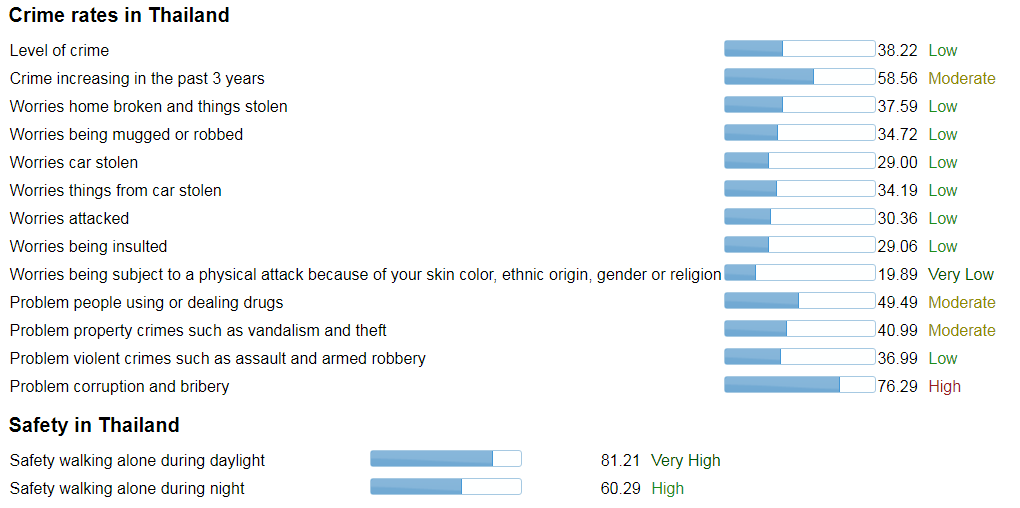
2. You can live comfortably with a low-cost budget
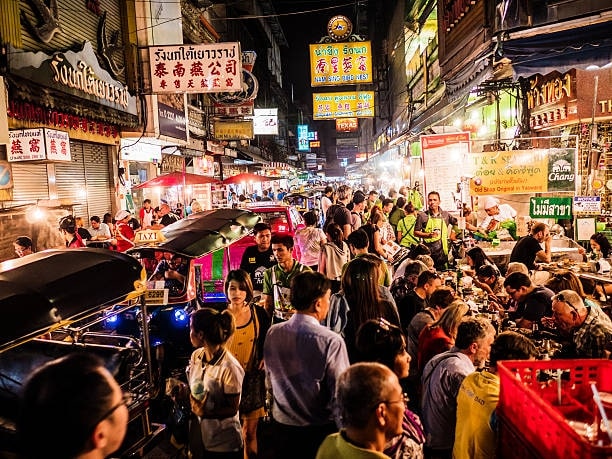
When it comes to the cost of living in Thailand, there’s some good news: it’s pretty affordable! In fact, many people find that they can live comfortably without spending a fortune.
Everything from housing to food to transportation tends to be fairly reasonably priced, so you can stretch your budget a little further than you might be able to in some other places.
The cost of living in Thailand is generally considered to be affordable compared to many other countries, particularly those in the West.
According to Numbeo, a website that provides crowd-sourced data on the cost of living in different countries, the cost of living index in Thailand is 40.7, which is currently ranked 79 out of 140 countries listed.
| Expense Category | Average Cost |
|---|---|
| Accommodation (1 bedroom apartment in city centre) | 10,000 THB – 20,000 THB |
| Utilities (electricity, water, gas, internet) | 2,500 THB – 4,000 THB |
| Food (groceries and dining out) | 10,000 THB – 15,000 THB |
| Transportation (public transport, taxis) | 2,000 THB – 4,000 THB |
| Entertainment (movies, concerts, etc.) | 2,000 THB – 4,000 THB |
| Healthcare (doctor visits, medication) | 1,000 THB – 2,000 THB |
| Miscellaneous (clothing, personal care, etc.) | 2,000 THB – 4,000 THB |
| Total Monthly Cost | 29,500 THB – 49,000 THB |
| Note: These are only rough estimates and actual costs can vary depending on factors such as location, lifestyle, and personal spending habits. |
3. Thailand boasts a well-developed healthcare system

When it comes to medical care, Thailand is definitely a standout destination. The country boasts a well-developed healthcare system with high-quality medical facilities and a team of well-trained medical professionals.
In fact, many medical professionals in Thailand have received their training in Western countries, making them highly skilled in both traditional and modern medical practices.
But what really sets Thailand’s healthcare system apart is its affordability.
The cost of medical treatment in Thailand is significantly lower than in many other developed countries, making it an attractive option for retirees and those seeking affordable healthcare.
Even procedures such as dental work and cosmetic surgery are often a fraction of the cost compared to other countries.
In addition, Thailand is also becoming increasingly popular as a destination for medical tourism, with a growing number of visitors coming to the country specifically for medical treatments and procedures.
This has led to further improvements in the healthcare system and facilities, ensuring that patients receive top-quality care and treatment.
4. Thailand offers high quality of living
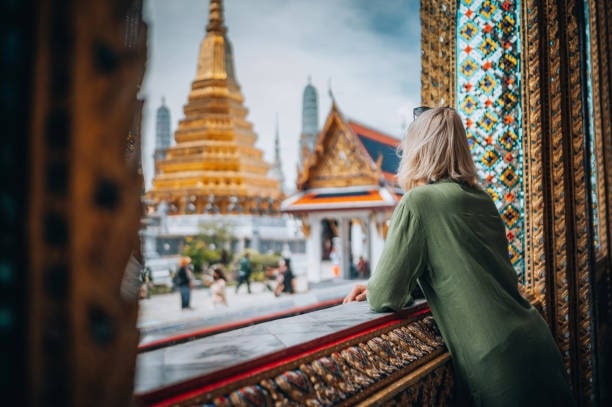
Thailand offers a high standard of living at a relatively low cost, making it an attractive destination for expats.
The country offers excellent value for money, especially in terms of accommodations.
High-end and mid-range rental properties in major cities provide a variety of amenities like gyms and pools, often located near public transportation or city centres.
With this in mind, let’s now explore how to plan your move to Thailand.
Starting a Life in Thailand: Preparing for Your Move

Before you board that plane to start a new life in Thailand, let’s make sure you’re prepared.
Here’s a checklist of things you’ll need to do to make your transition to Thailand as smooth as possible.
1. Get yourself a job

If you’re moving to Thailand because of work, this section will provide you with all the information you need to make the transition with ease.
English teaching is a popular job for foreigners in Thailand, and there are many language schools and institutions that hire English teachers. If you have a degree in education or a TEFL certification, you may be able to find work teaching English.
Another option is to work for a multinational company that has offices in Thailand. If you have experience in a particular industry, you may be able to find a job with a company that operates in Thailand.
Networking is also important when looking for a job in Thailand. Attend job fairs and networking events, and join online forums and groups where you can connect with other expats and locals who may be able to offer job leads or advice.
It’s important to note that working illegally in Thailand can result in fines, deportation, and other legal consequences. Make sure to obtain the appropriate visa and work permit before starting any job in Thailand.
2. Apply for the right visa
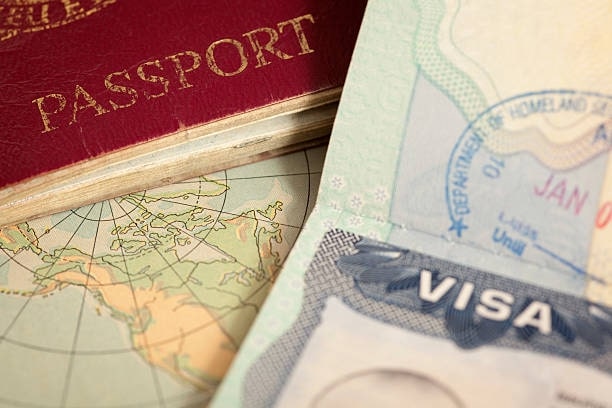
When planning to move to Thailand, one of the essential things to consider is getting the right visa. The visa options available to you will depend on your purpose of stay, whether it’s for work, retirement, or education.
For example, if you plan on working in Thailand, you’ll need to obtain a work visa, which requires a job offer from a Thai company and a work permit.
On the other hand, if you’re planning to retire in Thailand, you’ll need to apply for a retirement visa, which requires proof of age and financial stability.
To stay in Thailand for a longer period, tourist visas which are valid for 30 or 60 days are not sufficient, and obtaining the appropriate documents is necessary.
Alternatively, the Thailand Elite visa is a good option for those who have the means to afford it.
This visa can grant you a stay in the country for five to 20 years, and you won’t have to deal with the yearly documents and paperwork that are required for other Thai visas.
Non-immigrant visas for Thailand cover different categories including:
- F (official duties)
- B (business and work)
- ED (education)
- EX (experts and specialists)
- IB/IM (investors)
- M (media, film producers, and journalists)
- (family visitors, NGO volunteers, etc.)
- R (religious activities)
- RS (researchers and scientists)
- O-A (retirees)
With the right visa, you can legally stay and work in Thailand without any issues.
4. Research the costs of living in Thailand and make a budget

Creating a budget is definitely a crucial step in the moving process. You’ll want to make sure you have a good handle on your expenses before you make any big moves.
Take some time to research and calculate the cost of living in Thailand, including things like rent, utilities, food, transportation, and any other expenses you may incur while living there.
It’s important to create a realistic budget that takes into account both fixed and variable expenses, so you don’t find yourself struggling to make ends meet once you’re settled in.
There are plenty of tools and resources available online to help you create a budget that works for you, so take advantage of them. You may also want to consider consulting with a financial advisor or professional to help you with the process.
The more prepared you are, the smoother your transition to life in Thailand will be.
5. Decide where in Thailand you want to live

Whether you prefer a bustling city or a peaceful countryside, it’s essential to research and explore different areas to find the best fit for your lifestyle and budget.
Of course, when you’re moving to Thailand for work, you wouldn’t have much say in where to live. However, if your job allows flexible options, like a remote setup, you may consider settling in other areas.
| Factor | Bangkok | Chiang Mai | Phuket | Pattaya | Isan | Hua Hin |
|---|---|---|---|---|---|---|
| Cost of living | High | Moderate | High | Moderate | Low | Moderate |
| Transportation | Excellent | Moderate | Moderate | Good | Poor | Good |
| Weather | Hot and humid | Cool and dry | Hot and humid | Hot and humid | Hot and dry | Hot and humid |
| Nightlife | Excellent | Good | Excellent | Excellent | Limited | Good |
| Beaches | None | None | Many | Many | None | Many |
| Food | Excellent | Excellent | Excellent | Excellent | Excellent | Excellent |
| Culture and history | Many cultural and historical sites | Many cultural and historical sites | Some cultural and historical sites | Some cultural and historical sites | Many cultural and historical sites | Some cultural and historical sites |
| Expat community | Large | Large | Large | Large | Small | Moderate |
| Activities and attractions | Many attractions and activities | Many attractions and activities | Many attractions and activities | Many attractions and activities | Limited attractions and activities | Many attractions and activities |
| Education Opportunities | Many | Fewer | Fewer | Fewer | Limited | Fewer |
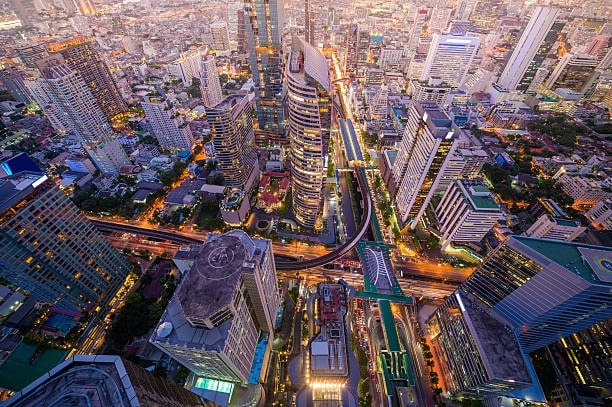
6. Obtain health insurance

Moving to a new country can be both exciting and challenging, especially when it comes to healthcare. That’s why getting health insurance is an essential step to consider when moving to Thailand.
While Thailand has a reputation for excellent healthcare at an affordable cost, unexpected medical emergencies can still happen, and the cost of medical treatment can add up quickly.
Without health insurance, you may have to pay out of pocket for medical expenses, which can quickly become a financial burden.
In addition, having health insurance can also help you access better healthcare options, including private hospitals and clinics. This can be especially important if you have pre-existing medical conditions that require specialised care.
Moreover, some visas for long-term stay in Thailand, such as the Non-Immigrant O-A visa, require proof of health insurance coverage for the duration of your stay.
7. Pack necessities and hard-to-find items in Thailand

You want to make sure you have everything you need to make the transition as smooth as possible.
First and foremost, make sure to bring all your important documents, such as your passport, visa, and any other paperwork you may need to present to immigration officials.
You should also pack appropriate clothing for the weather and cultural norms, including lightweight and breathable clothes for the hot and humid climate.
In Thailand, the things that are typically pricier include imported foods, electronics, books, car seats, high chairs, vitamins, and supplements, as well as brand-name clothes and shoes.
So it’s best if you bring these things with you when you already have them.
8. Organise and check important documents

You’ll need to have all the necessary paperwork in order to apply for visas, open bank accounts, rent or buy property, and even enrol your children in school.
It’s also a good idea to have copies of these documents, either physical or digital, in case the originals are lost or stolen. Don’t forget to double-check that all your documents are up-to-date and valid before you make the move.
Here is a list of important documents to bring when moving to Thailand:
- Valid passport with at least six months of validity remaining
- Thai visa, if required for your nationality and length of stay
- Work permit, if planning to work in Thailand
- Health insurance policy, preferably with coverage in Thailand
- Medical records and prescription medications
- Proof of finances or income, such as bank statements or employment contracts
- Birth certificate and marriage certificate, if applicable
- Driver’s licence or international driving permit
- Rental or property ownership agreements
- Educational transcripts or diplomas, if planning to study in Thailand
Settling In: Making Yourself at Home in Thailand
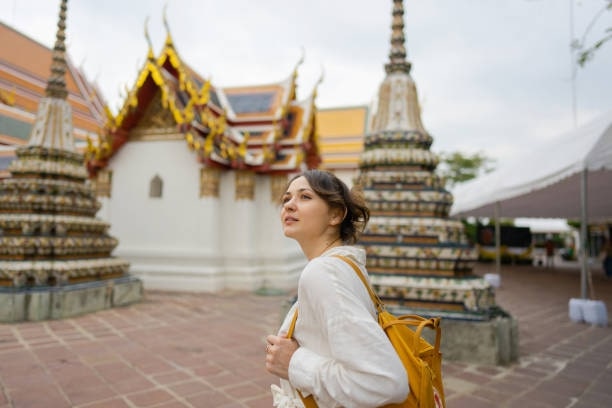
Now that you’ve made the decision to move to Thailand, it’s time to prepare for settling in.While it may seem overwhelming at first, taking things one step at a time and staying organised can help make the settling in process a smooth and enjoyable experience.
Also, listed below are not in a specific sequence and it’s best to prioritise what you need most depending on your situation.
1. Decide to rent or purchase a property

When it comes to finding a place to call home, the decision to rent or purchase can be a daunting one. Both options have their own benefits and drawbacks, and it ultimately depends on individual circumstances and preferences.
Buying a property is a big decision, but it can be a good investment in the long run. It’s essential to do your research and make sure you’re well-informed about the laws and regulations regarding property ownership in Thailand.
Foreigners are allowed to own or buy condominiums in Thailand, but there are restrictions on owning land. If you want to buy a house or land, you’ll need to do so through a Thai company or with the help of a Thai national.
On the other hand, one of the benefits of renting in Thailand is the affordability of the housing options, especially compared to other countries. You can find a comfortable and spacious apartment or house at a relatively low cost, depending on the location.
| Local tip: Rental agreements in Thailand may be different from what you’re used to in your home country, so make sure to read and understand the terms and conditions before signing. Additionally, some landlords may require a security deposit or upfront payment of several months’ rent, so be prepared for these expenses. |
2. Open a local bank account

To open a bank account in Thailand, you’ll typically need to provide your passport, work permit or visa, and proof of address. Some banks may also require a minimum deposit to open an account.
One important thing to keep in mind is that the Thai banking system may not be as advanced as what you’re used to in your home country. For example, some banks may not offer online banking or may have limited services in English.
It’s also important to understand the currency exchange rates and fees associated with using your bank account for transactions in Thailand. You may want to consider using a reputable foreign exchange service for larger transactions or currency exchanges.
3. Pay your taxes
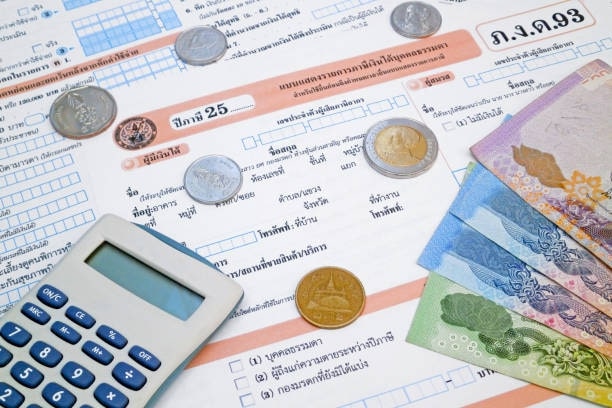
| Aspect | Tax Information |
|---|---|
| Tax Rate | 0% to 35% depending on income level |
| Compliance | Work with a reputable accountant or tax specialist |
| Record-Keeping | Keep accurate records of income, expenses, deductions, and exemptions |
| Thai Social Security | Monthly payment of up to 750 THB (required) |
| Access to Tax Deductions | Available to both expats and Thai workers |
If you’re working in Thailand, you’ll need to pay taxes on your income. The tax rate varies depending on your income level and can range from 0% to 35%.
To ensure that you’re complying with the tax laws, it’s best to work with a reputable accountant or tax specialist who can guide you through the process.
They can help you understand the different tax requirements, file your taxes correctly and on time, and answer any questions you may have.
We recommend keeping accurate records of your income and expenses, as well as any tax deductions or exemptions you may be eligible for. This can help you minimise your tax liability and avoid any penalties or fines for late or incorrect tax filings.
You will also have to contribute to the Thai social security system with a maximum monthly payment of 750 THB. On the plus side, you can benefit from tax deductions similar to other nations.
Some of the commonly chosen deductions include purchasing a condo or paying for life insurance. It’s important to note that both expats and Thai workers have access to these deductions.
| Local tip: Remember that the Thai government takes tax evasion seriously and penalties can be severe. So, it’s best to be upfront and honest about your income and pay your taxes on time to avoid any legal issues. |
4. Obtain a 90-day report at at Thai immigration
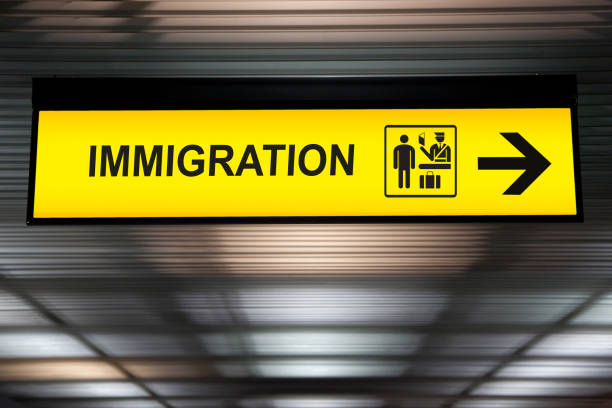
Dealing with immigration can be a bit daunting when moving to Thailand, but it’s an important step to ensure that you’re legally able to stay in the country.
Once you arrive in Thailand, you’ll need to check in with immigration and obtain a 90-day report. This can be done at a local immigration office or online, depending on your situation.
If you plan to stay in Thailand long-term, you may need to apply for a longer-term visa or a work permit. These can be more complex and may require the assistance of a lawyer or immigration specialist.
It’s important to keep track of your visa expiration date and make sure to renew it before it expires. Overstaying your visa can result in fines or even deportation.
5. Set up utilities for your place
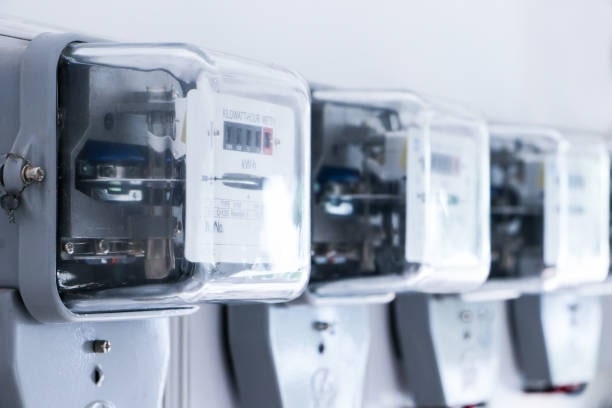
The process can vary depending on your location and the type of property you’re renting or purchasing.
In most cases, you’ll need to contact the local utility companies to set up services such as electricity, water, and internet.
There are various utility companies in Thailand that offer different services such as electricity, water, and internet. The major ones include MEA and PEA for electricity and MWA and PWA for water, while there are several providers for internet service.
These companies operate differently in each province, with some provinces having their own utility providers.
When setting up utilities, you’ll usually need to provide some basic information such as your name, address, and identification documents. It’s also important to ask about billing cycles and payment options, as these can vary from company to company.
One thing to keep in mind is that some utility companies may require a deposit before they will activate your service. This can range from a small amount to several months’ worth of service fees, so it’s important to budget accordingly.
| Local Tip: Some rental properties may include these services in the rent, but it’s always a good idea to double-check and make sure you understand what’s included. |
6. Enrol your kids in school
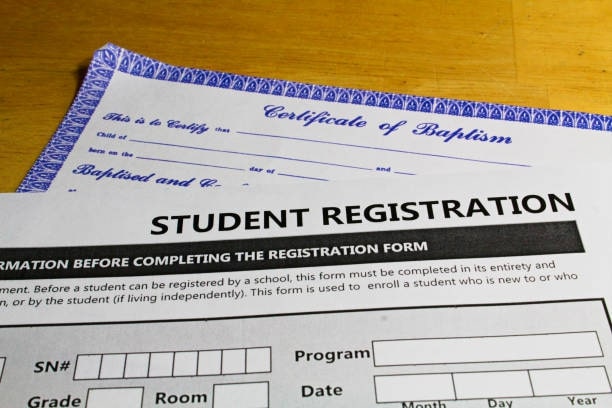
There are a variety of schools available, including public, private, and international schools in Thailand.
Remember that schools in Thailand may have different curriculums and schedules than what you’re used to. For example, the school year typically starts in May and ends in March, with a long break in October.
Another thing to consider is the language of instruction. Some schools offer classes in English, while others may teach primarily in Thai.
If your child doesn’t speak Thai, it may be helpful to enrol them in an international school that offers English-language instruction.
Living in Thailand: What to Expect When You’re There

Living in Thailand can be an exciting and enriching experience, but it’s important to understand that it comes with its own set of cultural differences and quirks.
Even after living in Thailand for several years, there may still be aspects of the culture that surprise you.
Over time, you’ll begin to pick up on the nuances of Thai culture and become more familiar with the way things work. While we can’t cover every aspect of Thai culture, we’ve listed a few basic points below to help you get started.
1. Familial living arrangements are common

In Thailand, it is common for multiple generations of a family to live together in the same household, and it’s not unusual for adult children to continue living with their parents until they get married.
In addition to this, it’s also common for families to take care of their elderly relatives rather than sending them to retirement homes. This is seen as a way to show respect for elders and maintain family unity.
If you’re planning on living in Thailand with your family, it’s important to keep in mind these cultural norms and expectations.
You may need to adjust your living arrangements or lifestyle to accommodate these values, especially if you plan on living with Thai relatives.
2. It takes a while to get the unspoken “no” and “never mind” attitudes

It can be quite tricky to navigate certain situations, especially when it comes to understanding how Thais communicate.
For instance, they tend to avoid saying “no” directly and may use a phrase that translates to “not yes” instead. This can cause confusion if you’re not paying attention to visual and situational cues that indicate a negative response.
You’ll also encounter the phrase “mai pen rai,” which translates to “never mind.” It’s a common phrase that expresses a relaxed and easy-going attitude, which is also reflected in the overall culture.
Some expats may find it frustrating, but it’s important to keep in mind that it doesn’t necessarily mean people don’t care. It’s just a different way of communicating and approaching life in Thailand.
3. Thais highly respect hierarchy

In Thai culture, hierarchy is a fundamental aspect that affects all areas of life. It’s important to understand and respect the social order, as it reflects the deeply ingrained values of the society.
For instance, age and social status play a significant role in determining how people address each other. Using the appropriate titles, such as “Khun” or “Nong,” shows respect and acknowledges the position of the person in the hierarchy.
Moreover, Thai culture emphasises the importance of maintaining harmony and avoiding confrontation. This means that direct criticism or refusal is often avoided.
As mentioned earlier, people may use visual or situational clues to express a negative response instead of explicitly saying “no.”
It’s also worth noting that the hierarchy extends beyond social interactions to business and government dealings. Let’s say, when applying for a visa or work permit, it’s essential to follow the proper procedures and show respect to the officials.
4. Learning Thai is essential

While English is widely spoken in tourist areas, learning Thai can make a big difference in your day-to-day life and help you better integrate into Thai society.
Even just learning basic phrases and greetings can go a long way in showing respect and appreciation for the local culture.
Thai people are generally friendly and willing to help foreigners learn their language through small talk, joining local community activities, and ordering food at restaurants.
Attending onsite classes, which can be conducted by language schools, tutors, or cultural centres, is also an option.
These offer a more immersive and interactive learning experience, and provide a chance to practise speaking with native Thai speakers, learn about Thai culture and customs, and improve your proficiency.
If you don’t have access to Thai language classes or tutors in your area, you can learn the language online through language learning apps, websites, and online tutors.
5. The air quality is quite poor in major Thai cities
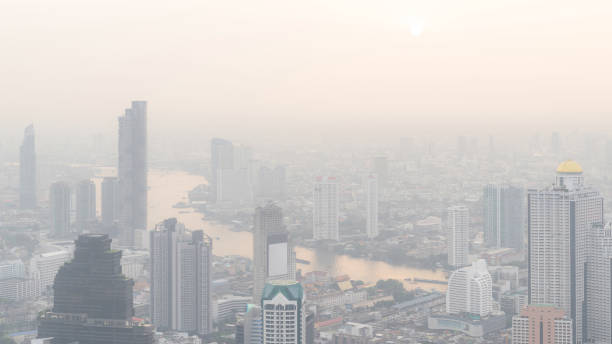
Bangkok and other major cities in Thailand are known to have high levels of air pollution and PM2.5, particularly during the dry season from February to April.
PM2.5 refers to fine particulate matter that can be harmful to human health when inhaled, and it can come from various sources such as vehicle exhaust, industrial emissions, and forest fires.
It’s important to monitor air quality levels and take precautions when necessary, such as wearing masks and avoiding outdoor activities during times of high pollution.
Although air pollution is a concern, it’s not all doom and gloom. Many areas in Thailand have good air quality, particularly in rural areas or near the coast.
6. The local social scene is a great way to immerse in the culture
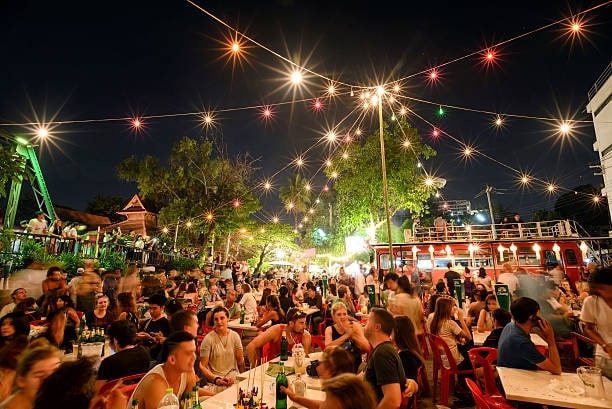
Thailand can offer a vibrant and exciting social life for expats. The country has a diverse mix of people from all around the world, making it easy to connect with other expats and locals alike.
Thailand is known for its lively nightlife scene, with many bars, nightclubs, and restaurants open until the early hours of the morning.
Aside from nightlife, there are also many cultural and social events to attend in Thailand. Festivals such as Songkran (Thai New Year) and Loy Krathong (Festival of Lights) offer a unique insight into Thai culture and traditions.
There are also regular food markets, art exhibitions, and music festivals throughout the year.
For those who are interested in sports, there are plenty of opportunities to get involved in activities such as Muay Thai, yoga, or hiking. Expats can join local clubs and classes to meet new people and participate in group activities.
Transitioning to a Life in Thailand from Overseas
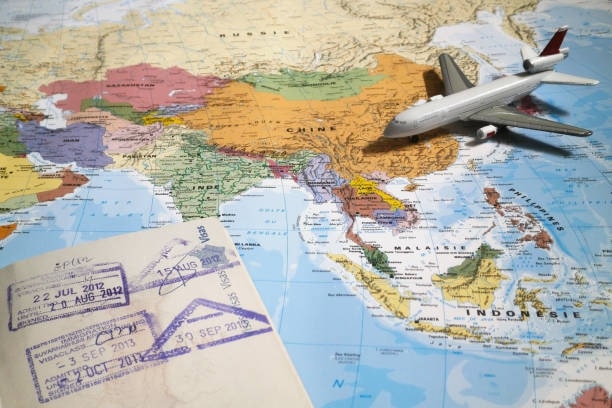
As a newcomer to Thailand, you’ll have the opportunity to explore and immerse yourself in a way of life that may be very different from what you’re used to.
However, it’s important to keep in mind that there may also be challenges and adjustments that come with this transition. In this journey, you’ll have to navigate a new language, cultural norms, and the practicalities of daily life in a foreign land.
But with a positive attitude and a willingness to learn and adapt, your transition to life in Thailand can be a rewarding and unforgettable experience.
Here are some of the notable difference of living in Thailand compared to other countries:
| Aspect | Thailand | UK | America | Australia | Canada |
|---|---|---|---|---|---|
| Cost of living | Relatively low compared to other countries | High cost of living | |||
| Climate | Hot and humid with a tropical climate year-round | Cold, rainy and temperate climate | Diverse climate with hotter summers and mild winters | Diverse climate with extreme winters and mild summers | |
| Cultural norms | Predominantly Buddhist with unique customs | Diverse population with a mix of cultures | |||
| Language | Thai language may be challenging to learn | English is the primary language | |||
| Driving | Driver’s seat is on the left-hand side of the car | Driver’s seat is on the right-hand side of the car | |||
Love living in Thailand? Here’s how to live here permanently!

If you’ve been living in Thailand for a while and want to make it your permanent home, it’s possible to become a permanent resident.
In summary, to apply for permanent residency in Thailand, you must fit into one of the five categories, which are investment, employment, humanitarian, expert, and extra circumstances.
Here is some more information on the five categories for obtaining permanent residency in Thailand:
- Investment: To qualify for this category, an applicant must invest at least 10 million THB (approximately $315,000 USD) in a Thai government bond, in a company that employs Thai nationals, or in other approved investments.
The investment must be maintained for at least three years before the application for permanent residency is submitted.
- Employment: An applicant must have been employed in Thailand for at least three consecutive years with a valid work permit and have a minimum monthly salary of 50,000 THB (approximately $1,570 USD).
- Humanitarian: An applicant must have been married to a Thai citizen for at least two years, or have a Thai child under the age of 20, or be over the age of 50 and have been residing in Thailand for at least three years.
- Expert: An applicant must be a foreign expert in a field that is needed in Thailand, such as science, technology, or art.
The applicant must have worked in Thailand for at least three years and earn a minimum salary of 80,000 THB (approximately $2,500 USD) per month.
- Extra circumstances: This category is for applicants who do not fit into any of the other categories, but have a unique situation that justifies permanent residency in Thailand.
Examples include foreign retirees who have been living in Thailand for at least three years and can show proof of sufficient income or assets.
It could also be foreigners who have made significant contributions to Thailand in areas such as culture, arts, or sports.
As a permanent resident, you’ll also enjoy several benefits such as no longer needing to do 90-day reports and not requiring residence certificates. You’ll also be eligible to apply for Thai citizenship after five years.
So, if you’re interested in making Thailand your permanent home, do your research and see which category you might qualify for.
Stay Prepared: Emergency Numbers in Thailand

In case of an emergency, it’s important to have the right phone numbers on hand. Here are some essential emergency numbers to keep in mind when you’re in Thailand:
| Type of Emergency | Phone Number |
|---|---|
| Public Emergency Medical Services | 1669 |
| Private Emergency Medical Services | 1724 or 1719 |
| Tourist Police | 1155 |
| Fire Department | 199 |
| Police | 191 |
| Highway Police | 1193 |





